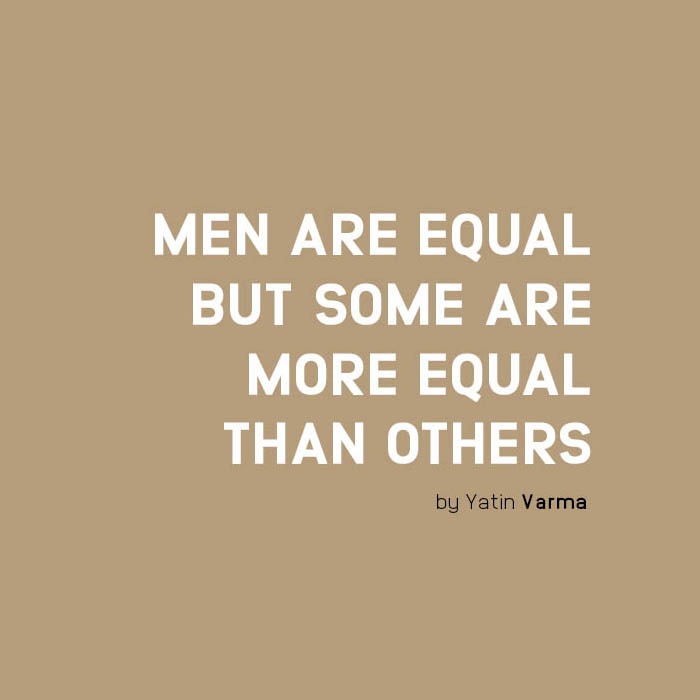The Prime Minster has been reported to have stated the following in the National Assembly recently : In the two cases of Honourable Dayal and Honourable Lutchmeenaraidoo, I asked the Commissioner of Police not to take upon himself a decision to bring anyone of them before the Court of Law and have a provisional charge. I asked him to have the enquiry completed, not to take decision by himself, but refer it to the DPP. Let the DPP decide whether there is a case.
The post of Commissioner of Police is a constitutional one enshrined in section 71. Section 71(3) of the Constitution states “ The Prime Minister, or such other Minister as may be authorized in that behalf by the Prime Minister, may give to the Commissioner of Police such general directions of policy with respect to the maintenance of public safety and public order as he may consider necessary and the Commissioner shall comply with such directions or cause them to be complied with.
Section 71(4) of the Constitution further states “ Nothing in this section shall be construed as precluding the assignment to a Minister of responsibility under section 62 for the organization, maintenance and administration of the Police Force, but the Commissioner of Police shall be responsible for determining the use and controlling the operations of the force and, except as provided in subsection (3), the Commissioner shall not, in the exercise of his responsibilities and powers with respect to the use and operational control of the force, be subject to the direction or control of any person or authority.
It is clear that the Prime Minister may give to the Commissioner of Police general policy directions as regards the maintenance of public safety and public order. As per the Constitution, in the exercise of his responsibilities with respect to the use and operational control of the police force, the Commissioner of Police is not subject to the direction or control of any person or authority.
It cannot be said that the cases of Dayal and Lutmeenaraidoo had or will have an impact on public safety and public order. According to reliable information, the Independent Commission Against Corruption requested for warrants of arrest in both cases and the Commissioner of Police complied with the instructions of the Prime Minister in not acceding to the requests ab initio. Dayal was finally arrested and the public is still in the dark as regards Lutchmeenaraidoo.
The Commissioner of Police is now under a duty to inform the public as to why and how he derogated from section 71 of the Constitution which states in no uncertain terms that he shall not be subject to the direction and control of any person or authority.
It is common knowledge that the police lodges provisional charges well before the enquiry is completed. In many cases, the statement of a suspect is recorded after he has been provisionally charged. Of course, we are here referring to the common man, not a Honourable Member of the governing party having the blessings of the Right Honourable Prime Minister. Time and again, it has been argued in many forums that the police makes an abuse of provisional charges. In a number of instances, the provisional charges are dropped or struck out along the way. The prejudice caused to the aggrieved persons is immense. Unfortunately, they rarely succeed in their claim for damages. The law has been couched in such a way to protect public officers who happen to be police officers in this case. Subsequent Governments have been legally advised to protect themselves from such claim in damages. Just imagine a person, arrested, provisionally charged and having an objection to departure and the case gets struck out having no recourse to any remedy. It goes without saying that he would also have suffered during that time a flinching by the media. Had the Office of the Director of Public Prosecutions agreed to the Police and Criminal Evidence Bill in 2013, such abuses would definitely have been curtailed.
The Commissioner of Police being accountable to the public should make it clear as to why were Navin Ramgoolam, Anil Bachoo and Shakeel Mohamed arrested, provisionally charged prior to the enquiry being completed and the files sent to the DPP for advice. In two of the above cases, the Police even objected to bail being granted. Had it not been for our independent judiciary, the persons concerned would have remained in police custody.
The Commissioner of Police is also under a sacrosanct obligation to state the reasons why Ish Sookun and Mr Ruhomatally were arrested, provisionally charged and detained, due to police objection to bail, prior to the enquiry being completed and their files sent to the DPP for advice.
Finally will Mr Mario Nobin , Commissioner of Police of the Republic of Mauritius inform the public at large that henceforth no person, whether he is a member of parliament belonging to the ruling alliance or not, whether he is a Minister or not, will be arrested and provisionally charged prior to the enquiry being completed and advice sought from the DPP as to whether there is a case?
If he does not, he will send a clear signal that we are living in a Banana Republic where all men are equal but some are more equal than others.


Leave a Reply